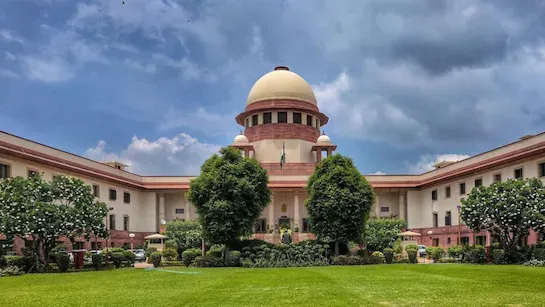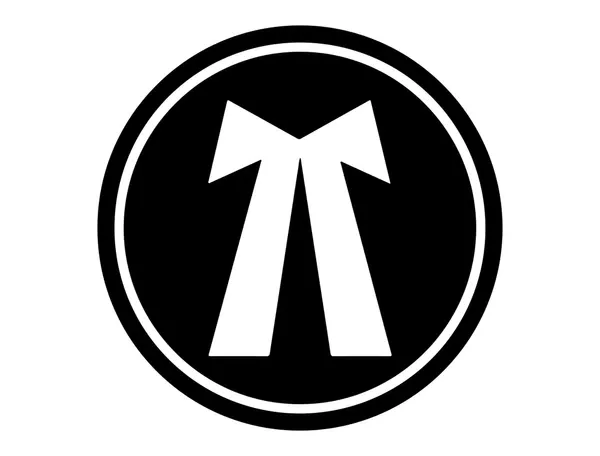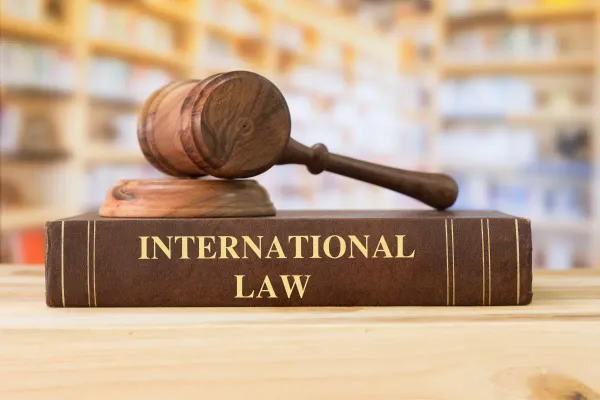Supreme Court Issues Fresh Guidelines on Senior Advocate Designation Process, Scraps Marking System

Author: Mansi Jayant, 4th year student, Trinity Institute of Professional Studies
Introduction
In a landmark verdict to enhance institutional purity and transparency, India's Supreme Court has overhauled the mechanism for the appointment of Senior Advocates in constitutional courts. The order, delivered by a three-judge Bench led by Justice Abhay S. Oka, Justice Ujjal Bhuyan, and Justice S.V.N. Bhatti, reverses parts of the previous directions issued in the Indira Jaising case [(2017) and 2023 amendments], and invokes Section 16(2) of the Advocates Act, 1961 to reaffirm that single judges cannot suggest advocates for such designation. This decision not only insists on institutionally and democratically arrived decisions but also requires diversity-sensitive judgment while deciding on eligibility.
Background of the Case
The title of Senior Advocates has traditionally been based on principles established in the Indira Jaising v. Supreme Court of India case, wherein the Supreme Court had promulgated detailed guidelines so that appointments are based on merit and made in a transparent manner. But with the passage of time, there was growing criticism of irregularities in implementation, the misuse of personal discretion, and lack of diversity in the choices made.
The current case reexamines this framework. The Bench reserved judgment on March 20, 2024, after pointing out several concerns ranging from interviews, the system of secret ballots, to prejudice against trial court advocates. The catalyst was a case concerning supposed misrepresentation by a chosen Senior Advocate, the need to ensure that worthy candidates are the only ones given this select status under Section 16(2) of the Advocates Act.
Statutory Framework
The judgment primarily examines provisions under the Advocates Act, 1961, particularly:
Section 16(2): Provides that an advocate may be designated as a Senior Advocate by the Supreme Court or High Court if, in their opinion, by virtue of ability, standing at the Bar, or special knowledge or experience in law, they deserve such distinction.
The judgment further aligns the designation process with principles of transparency, fairness, and institutional integrity.
Key Directions
- Disqualification of Individual Recommendations: Individual judges can no longer recommend advocates for designation. The Supreme Court has made it clear that the designation must be through institutional procedures, aligning with Section 16(2).
- Role of Full Court and Permanent Committees: The authority to designate rests solely with the Full Court of the Supreme Court or respective High Court. Applications vetted by the Permanent Committee must be placed before the Full Court with all supporting materials.
- Voting and Consensus: While consensus remains the preferred mode, voting will be adopted when required. Whether such voting will be by secret ballot is left to the discretion of each court based on its context.
- Mandatory Annual Exercise: Courts must hold at least one designation process every year, ensuring regularity and wider opportunity for eligible candidates.
- Continuation of Application System: The Court upheld the system of advocates applying for designation, stating that such applications indicate consent. However, in deserving cases, suo motu designations are also permitted.
- Framing of New Rules: High Courts must frame or amend their existing designation rules in line with this judgment within a four-month period.
- Acknowledgment of Indira Jaising's Contribution: The Court especially recognized Senior Advocate Indira Jaising’s pioneering role in initiating reforms and debates on transparency in the designation process.
Legal Issues
The Supreme Court addressed multiple legal concerns, including:
- Whether individual recommendations for Senior Advocate designation undermine institutional fairness.
- Whether the continuation of certain practices from the 2017 and 2023 guidelines conflicted with Section 16(2).
- Whether diversity, objectivity, and transparency were adequately incorporated in the existing procedures.
- Whether the periodic designation process needed judicial reinforcement.
Supreme Court’s Decision
The judgment unequivocally held that individual judge recommendations are impermissible, citing Section 16(2) as the statutory mandate for an institutional approach. The Court also dismantled the existing marking scheme and called for High Courts to amend or frame new rules that reflect these procedural reforms within four months.
It reinforced the democratic principle that Full Court decisions, arrived at either by consensus or majority vote, should govern the process. The Court’s directive to conduct annual designation exercises was aimed at preventing arbitrariness and ensuring a consistent opportunity for deserving advocates.
Additionally, the Court encouraged diversity in designations taking into account gender, practice areas especially trial court advocates, and broader representation from different sections of the legal community.
Significance of the Judgment
This ruling is a turning point for the legal profession. It upholds the dignity of the “Senior Advocate” title by fortifying the process with institutional accountability. By eliminating the scope of favoritism or ad hoc selections through individual recommendations, the Court has established a uniform, transparent, and merit-based system.
The abolition of the marking system and emphasis on diversity reflect a more progressive and inclusive outlook for future designations. The mandatory annual exercise and time-bound rule-making obligation imposed on High Courts ensure regular and fair opportunities for the legal fraternity.
Conclusion
The Supreme Court's recent ruling on the selection of Senior Advocates is a major move towards institutional integrity, meritocracy, and inclusiveness in the Indian legal fraternity. In exercising Section 16(2) and overriding individual judge recommendations, the Court has made one thing abundantly clear: designations have to be earned based on impersonal and transparent processes, not granted on personal whims. This historic ruling not only upholds the spirit of the Indira Jaising judgment but also makes it sharper and more functional to serve the changing requirements of a dynamic jurisprudence.
Read Judgement: https://legalwiki.co/article/supreme-court-overhauls-senior-advocate-designation-process-scraps-marking-system/
To read more, visit legalwiki.co



![Paid Internship Opportunity at PPG Legal [Delhi;Stipend Rs 5-15K]-Apply by Jan 31!](/content/images/size/w600/2026/01/Internship2.webp)
![Internship Opportunity at The Office of HMJ R. Mahadevan, Delhi [Full-time; Delhi]- Apply by January 15!](/content/images/size/w600/2026/01/R.-Mahadevan.png)